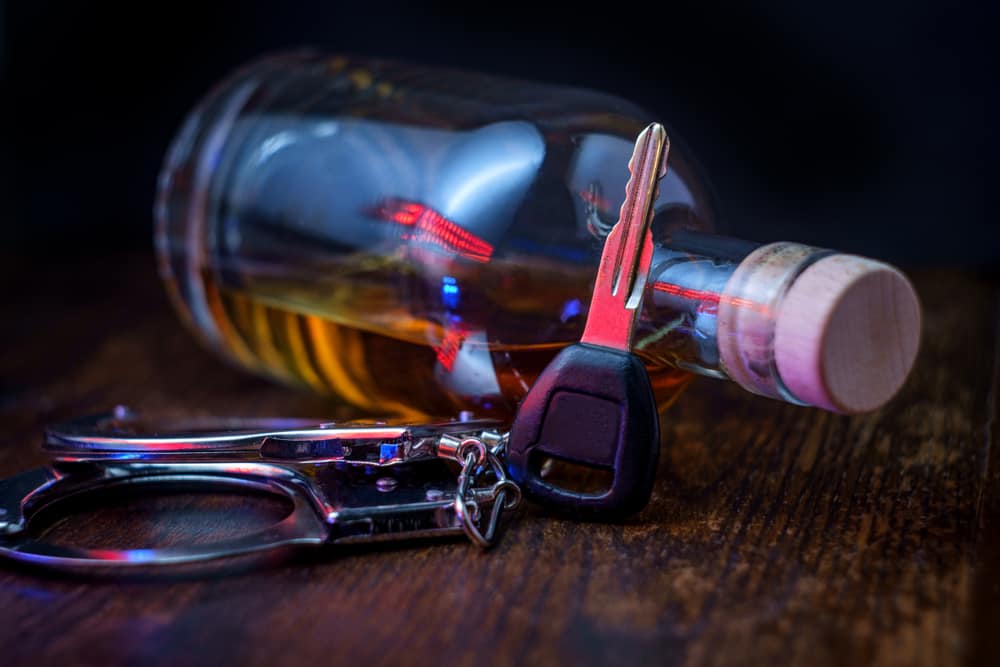
Even a first offense DWI in Dallas carries harsh consequences that can negatively affect your life for years to come. A DWI conviction not only includes hefty fines and mandatory jail time, but also involves a lengthy suspension of your driver’s license. Fortunately, one of our Dallas first offense DWI lawyers can help. We can explain all your options under the law and help you choose the best one for your situation. Our Dallas Criminal Defense lawyers can then take charge of your case, negotiating with prosecutors or representing you in court.
What Are the Penalties for a First Offense DWI in Dallas?
In Texas, DWI fines and penalties are especially harsh, even for a first-time conviction. Per the Texas Department of Transportation (TxDOT), a first offense DWI conviction carries penalties like:
- Up to 6 months in jail
- A fine of up to $2,000
- A driver’s license suspension for up to 1 year
Depending on the details of your case, the state might also require you to:
- Install an ignition interlock device on your vehicle
- Perform community service
- Submit to community supervision or probation
- Attend DWI school or rehab
Additional Penalties for DWI
Exacerbating factors that may increase your penalties from a DWI conviction include:
- Having an open container of alcohol in your vehicle
- A BAC above 0.08
- Having a minor (a person under the age of 15) in the car with you
In addition to these penalties, a first-time DWI conviction could affect you by:
- Making it difficult for you to get to work or fulfill family or social obligations
- Distract or take you away from work or school
- Force you into debt or otherwise cause financial distress
- Set you up to suffer even harsher penalties if you are ever brought up on second offense DWI charges
How Can Your Firm Help Me?
Randall Isenberg has spent over 30 years as a prosecutor, a judge, and a defense attorney, so he understands how the system works. He is familiar with the complexities of the court system and can help ensure that every aspect of your case is handled appropriately.
Although a first offense DWI lawyer from Law Offices of Randall B. Isenberg can provide a comprehensive explanation of your options, most Dallas drunk driving charges go one of four ways. You can:
- Plead guilty to the original charges
- Enter a plea bargain
- Plead not guilty and go to trial
- Have your charges dismissed
Which of these options is most achievable – and most beneficial – for your case? Our firm can help you figure that out by:
- Reviewing your case: We can review every detail of your arrest and the case pending against you to identify potential areas of weakness. For example, we may check to ensure that the police did not violate your rights at any stage.
- Collecting evidence: Potential evidence in DWI cases may include witness testimony, surveillance footage, or police reports.
- Consulting with you: We would be happy to explain the specifics of your case and help you figure out how to approach it.
Our DWI Lawyers will Handle Every Aspect of the Case
Once we understand your case and have decided on a course of action, our team can accomplish all necessary legal actions on your behalf. These might include:
- Negotiating for reduced charges: For instance, we may be able to get the charge against you changed from DWI to roadway obstruction. This way, you will not lose your license.
- Getting the charges dismissed: This may be possible if the arresting officer did not have a good reason for pulling you over, or if the prosecution does not have strong enough evidence to win in court.
- Fighting for you in court: We can make sure your case is as strong as possible before the trial starts and present it in a way the jury may find persuasive.
- Filing for an appeal: If a trial does not go your way, we may be able to arrange for a new one based on error or misconduct.
After charging you with your first DWI, the police and prosecutor may not give you a full explanation of your options. Their job is to obtain a conviction in your case, so you should never rely on their advice.
By explaining the benefits and risks of all available options, a DWI attorney from our office can help you determine the best approach for you. Whatever direction you choose, we can build a strong case on your behalf, protecting your rights under the law.
Can We Fight Field Sobriety Test Results?
One way for us to protect your rights is to ensure that any field sobriety tests administered to you were conducted properly and for good reason. Field sobriety tests may include breathalyzers or asking you to perform basic actions, like walking in a straight line.
Per the National Highway Transportation Safety Administration (NHTSA), officers must undergo special training in order to accurately conduct such tests. We can take a look at when and how field sobriety tests were conducted to determine if:
- The officer had the proper training to perform the tests done on you.
- The officer performed tests that were appropriate for the situation.
- There were no mitigating factors that could have influenced the test results.
- The officer had sufficient reason for pulling you over and testing you in the first place.
We can also look at the validity of other types of sobriety tests, such as blood and urine tests.
Can I Get My Driver’s License Back?
Even if you are not convicted of DWI, your license will be confiscated automatically upon your arrest. You may be able to get your license back, but you must do so quickly.
You have 15 days to request an Administrative License Revocation (ALR) hearing to contest your suspension. The ALR is a civil administrative process separate from the criminal aspects of your case.
Unless you or your attorney requests the ALR hearing, the Texas Department of Public Safety (DPS) will automatically suspend your license for a period of 90 days to two years, depending on your driving history and the circumstances of your arrest.

What is “Legally Intoxicated” Under Texas Law?
TX Penal Code Title 10 Chapter 49 lays out the state’s DWI laws. Per the statute:
- You are legally intoxicated if your blood alcohol concentration (BAC) is 0.08 or more.
- An officer may deem you legally intoxicated any time you exhibit impairment, even if your BAC does not exceed the legal limit. This offense is a Class B misdemeanor charge.
- If your BAC was 0.15 or more, the charge is elevated to a Class A misdemeanor. If you have a passenger under the age of 15 in your vehicle, you become eligible for a felony charge.
If you are between the ages of 17 and 21, Texas maintains a zero-tolerance policy. This means that any trace of impairment from alcohol or drugs constitutes illegal intoxication, whether you meet the 0.08 threshold or not. In this case, the officer may elect to charge you with either DWI or driving under the influence (DUI), a Class C misdemeanor.

Call Our Firm and Let Us Build a DWI Defense
If you are facing first offense DWI charges, contact Law Offices of Randall B. Isenberg today to learn more. Our number is (214) 696-9253. After the initial consultation, a DWI lawyer from our Dallas, Texas office will answer your questions and explain your options thoroughly.










